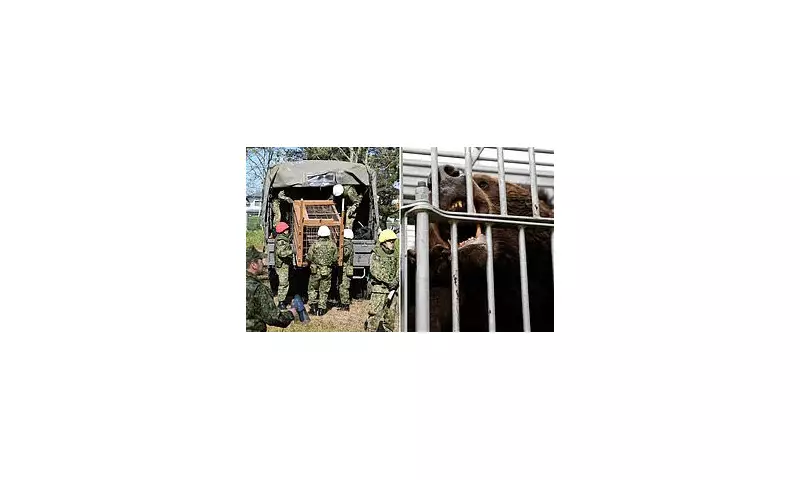
In an extraordinary response to a growing wildlife emergency, Japan has deployed military personnel to combat a dramatic surge in bear attacks that has left communities across the nation on high alert. The unprecedented move comes as official figures reveal more than 100 people have been injured in bear encounters during the past six months alone.
Military Intervention in Wildlife Crisis
The Japanese Ministry of Defence has confirmed that troops are being dispatched to several northern regions where bear sightings have become increasingly common. This marks one of the first times Japan's Self-Defence Forces have been mobilised specifically to address a wildlife threat of this magnitude.
Defence officials stated that military units will work alongside local authorities to establish safety perimeters, conduct patrols in high-risk areas, and implement emergency response protocols. The deployment focuses particularly on Hokkaido and northern Honshu, where the majority of attacks have occurred.
Alarming Statistics Reveal Growing Threat
Recent data from Japan's Environment Ministry paints a concerning picture. Between April and September of this year, authorities recorded:
- Over 100 people injured in bear encounters
- A significant increase compared to previous years
- Multiple fatalities reported
- Numerous sightings in urban and residential areas
Wildlife experts attribute the surge to several factors, including shrinking natural habitats due to urban expansion and changes in food availability in bear territories. The situation has become particularly dire in rural communities where residents now fear venturing into forested areas alone.
Community Response and Safety Measures
Local governments have implemented emergency measures, including:
- Increased public awareness campaigns about bear safety
- Distribution of bear repellent devices to residents
- Establishment of 24-hour emergency hotlines
- Regular patrols in school zones and residential areas
"We've never seen anything like this before," said one local official from Akita prefecture. "People are genuinely frightened to go into their own gardens, let alone walk in the woods. The military presence, while unusual, is providing some much-needed reassurance."
Expert Analysis and Long-term Solutions
Conservation specialists warn that this crisis highlights deeper ecological issues. "This isn't just about bears becoming more aggressive—it's about their natural habitats shrinking and food sources becoming scarcer," explained Dr Kenichi Tanaka, a wildlife biologist at Hokkaido University.
Environmental officials are exploring longer-term strategies, including habitat restoration projects and the creation of wildlife corridors to reduce human-bear conflicts. However, with winter approaching and bears becoming more active in their search for food, immediate safety concerns remain the priority.
The situation continues to develop as authorities work to balance public safety with wildlife conservation in one of Japan's most significant human-wildlife conflicts in recent memory.





